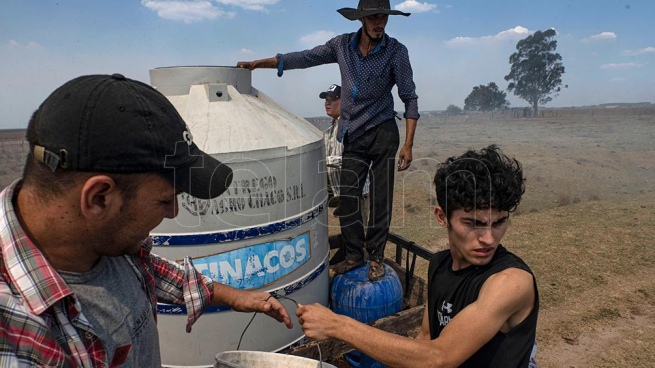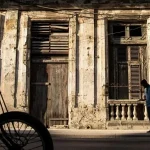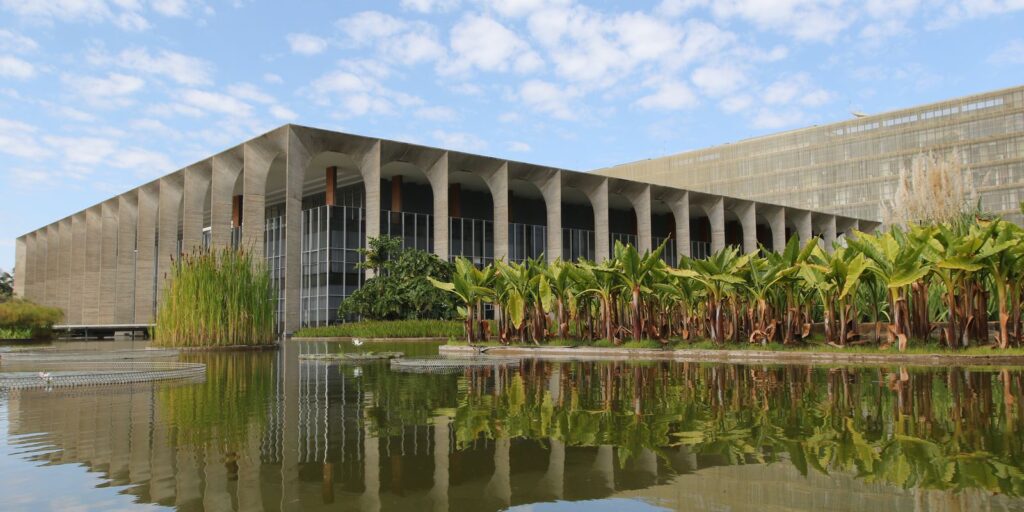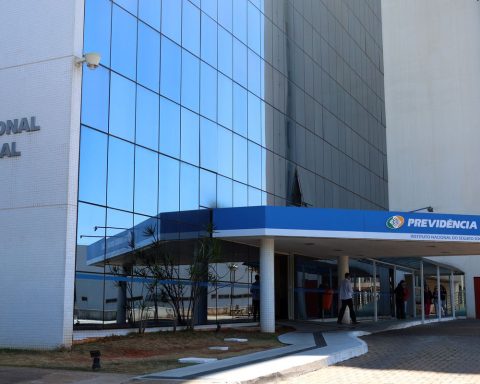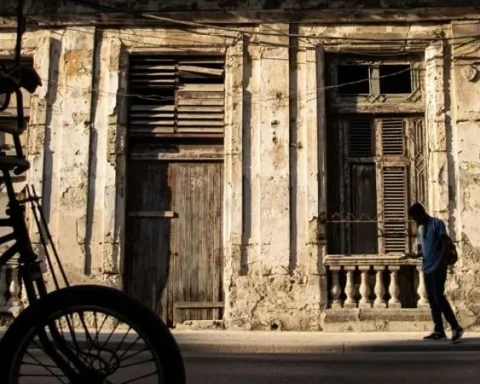Farmers who carry water tanks in the bed of their trucks, laborers who remove embers with their work tools and gauchos who go into the pastures with a bucket of water on their shoulders to try to stop the advance of the fire in the north of Corrientes are some scenes that are repeated on the side of routes 12 and 118 and in most of the towns around the Esteros del Iberá wetland.
There are also neighbors who cooperate to herd cattle and protect them from the fire that with multiple outbreaks has already consumed 785,000 hectares, 9% of the surface of the province of Corrientes, declared yesterday an “ecological and environmental catastrophe zone” by Governor Gustavo Valdés.
Rural workers, small producers and residents of the towns affected by the fires that reached the south of Misiones, are organizing as a community to fight the flames that threaten pastures, livestock and forestation.

It is a complement to the central action of brigadistas from half a dozen provinces and volunteer firefighters who work coordinated by a joint force made up of the Ministries of Environment and Defense together with the Armed Forces, with hydrant planes and helicopters that detect new sources, and in which the Civil Defense areas of the municipalities of northern Corrientes and teams hired by companies that manage large coniferous forests participate.
Despite the deployment, the voracity of the flames and the speed with which the wind multiplies new sources of fire make any effort seem insufficient, which is why hundreds of residents and workers organized themselves in their own communities to try to protect homes and productions in which they invested years of work and all their resources.
To the south of the national forces camp located on Route 118, two sources of fires fueled by the wind advanced towards the home of a family of small agricultural producers who tried to stop the flames with buckets of water and crushing the embers with blows. , while two women herded the cattle to a safe place.

When the flames were a few meters from the house, a group of neighbors arrived who had loaded a 1,500-liter domestic water tank into a truck to which they had connected a hose and with which they improvised a kind of fire engine. The brigade members from the province of Córdoba arrived at full speed behind them, alerted to the situation by a man who ran to the base coordinated by the Environment and Defense portfolios.
The scene was completed with several neighbors who went into the pastures carrying buckets to try to contain the advance of the flames, while one of them struggled with a pump and a generator to try to supply them with water from a well as quickly as possible.
“There have always been fires in this area, but only the oldest inhabitants remember a disaster that resembles this one; many families may lose their houses or worse, they may lose their cattle, forests or productions that took them a long time to grow and a money that the fire is not going to return anything to,” Jorge told Télam while trying to get the pump to work.

“We try to help each other as best we can, when the fire reaches one’s field we all go there to try to put it out or if some cattle have to be moved we also see how we can help each other,” he added.
A few meters away, Miguel Ángel lamented the losses: “The problem is not only now that we have to put out the fire, but also to rebuild everything that the fires are consuming; many families have lost thousands of meters of fences that we have to pick it up again with prices that are through the roof”.
“The same thing happens with forestation that takes about eleven years to be productive and that catches fire in a little while, or with cattle that can not only be lost now in the fires, but also in the coming weeks due to the effects of heat or the next few months due to lack of food if they don’t have enough pasture,” he added.

While they were repairing a fence on the side of Route 12, a group of locals told Télam that some of the fires were intentionally caused by people dedicated to cattle theft, so during the last nights the neighbors themselves organized a patrol in the area to prevent these criminal acts and protect their animals.
Federico, an employee of one of the companies that manages coniferous forestry in the surroundings of the Iberá National Park, assured Télam that all the forestry enterprises in the area work cooperatively against the spread of the flames.

“Some bought fire trucks, others have tanks, some have trucks and all have personnel available to fight fires; so when a fire affects a plantation, everyone comes to help because we are clear that flames that are not controlled at one point can quickly affect to the rest,” he said.
All the neighbors and workers who joined the fight against the fires agreed that these efforts will not be enough to control fires that are constantly multiplying, but they stressed that the ties of solidarity with those who dispute the houses and each production to the flames are going to be essential to rebuild everything that they consume.
